2015 48th Annual Meeting
Evolution of Sex
48th Annual Meeting of the Society for the Study of Reproduction
18–22 June 2015
San Juan, Puerto Rico, USA
Puerto Rico Convention Center
From the President
The Annual Meeting serves many functions, but a central function is to provide a forum for its members to re-connect and become energized, revitalized, rejuvenated, and excited to initiate new experiments as a result of presentations and conversations with colleagues. Because the meeting serves as an important opportunity to attract new members, the program must have broad appeal that not only meets the needs of our membership but also piques the interest of scientists who do not view themselves as reproductive biologists.
The theme of the 2015 Annual Meeting, “Evolution of Sex,” is deliberately designed to appeal not only to SSR membership but well beyond. And recognizing that many people can only attend one or perhaps two meetings a year due to the current funding climate, the meeting’s format has evolved to a meeting-within-a-meeting, with morning sessions that should be of interest to every attendee and afternoon Focus Sessions that will appeal to the specialist.
Program Co-Chairs John Eppig and Sarah Kimmins and I have pulled out all stops for the 2015 Annual Meeting, and have invited the best scientists in the world to speak. With this exciting program, it is important that every member of SSR attends the 2015 meeting. There is no excuse for not attending! The program will be fantastic, and San Juan is an attractive and readily accessible and affordable destination point. Our program is singularly exciting and provocative, just as the theme promises.
—Richard M. Schultz, Ph.D., President
Scientific Programs
Programs
Historical Perspectives Keynote Address
- Speaker: Elizabeth Watkins, Ph.D. (University of California, San Francisco, San Francisco, California, USA). “Reconceiving the Pill: From Revolutionary Therapeutic to Lifestyle Drug.”
State-of-the-Art Lectures
(Partial support by the Asia-Pacific Biomedical Research Foundation.)
- Speaker: Ina Dobrinski, D.V.M., Ph.D. (University of Calgary, Calgary, Alberta, Canada). “Germ Line Modification to Create Large Animal Models of Human Disease.”
- Speaker: David P. Bartel, Ph.D. (Whitehead Institute for Biomedical Research, Cambridge, Massachusetts, USA). “MicroRNA Evolution and Function.”
President’s Symposium: Evolution of Sex
- Speaker: David C. Page, M.D. (Whitehead Institute for Biomedical Research, Cambridge, Massachusetts, USA). “The Evolution of Sex: Rethinking the Pristine X and Rotting Y Chromosomes.”
- Speaker: Willie J. Swanson, Ph.D. (University of Washington, Seattle, Washington, USA). “Adaptive Co-Evolution of Interacting Sperm-Egg Reproductive Proteins.”
- Speaker: R. Michael Roberts, Ph.D. (University of Missouri, Columbia, Missouri, USA). “The Evolution and Developmental Origins of the Mammalian Placenta.”
- Speaker: Nathaniel Comfort, Ph.D. (Johns Hopkins University, Baltimore, Maryland, USA). “The Self-Direction of Human Evolution, from Darwin’s Rabbits to CRISPR.”
Exchange Lectures
- SSR New Investigator: Satoshi Namekawa, Ph.D.(Cincinnati Children’s Hospital Medical Center and University of Cincinnati College of Medicine, Cincinnati, Ohio, USA). “Germline Epigenome and Sex Chromosome Inactivation.”
- SRF New Investigator: Andrew Childs, Ph.D. (The Royal Veterinary College, London, United Kingdom). “Regulation of Human Fetal Ovarian Germ Cell Development.”
- ASRM Distinguished Research Scientist: Gautam Chaudhuri, M.D., Ph.D. (University of California, Los Angeles, Los Angeles, California, USA). “Mysteries of the Endothelium: More Secrets Unraveled.”
Diversity Symposium
(Speaker supported by FASEB-MARC through a grant from the National Institute of General Medical Sciences, National Institutes of Health T36-GM08637.)
- Speaker: Genevieve S. Neal-Perry, M.D., Ph.D.(University of Washington Medical Center, Seattle, Washington, USA). “Maternal Vitamin D Deficiency Programs Hypothalamic–Pituitary Dysfunction and Subfertility in Affected Female Offspring.”
Heritage Luncheon
- Speaker: Ryuzo Yanagimachi, Ph.D. (University of Hawaii School of Medicine, Honolulu, Hawaii, USA). “M. C. Chang, Grandfather of IVF.”
NIH Mock Study Section for Grant Proposal Peer Review
- Susan Taymans, Ph.D. (NICHD, Fertility and Infertility Branch, Bethesda, Maryland, USA).
- Louis DePaolo, Ph.D. (NICHD, Fertility and Infertility Branch, Bethesda, Maryland, USA).
- Gary Hunnicutt, Ph.D. (NIH, Center for Scientific Review, Bethesda, Maryland, USA).
NIH Policy Seminar: Updates in NIH Policy
- Susan Taymans, Ph.D. (NICHD, Fertility and Infertility Branch, Bethesda, Maryland, USA).
- Louis DePaolo, Ph.D. (NICHD, Fertility and Infertility Branch, Bethesda, Maryland, USA).
- Thaddeus T. Schug, Ph.D. (NIEHS, Population Health Branch, Research Triangle Park, North Carolina, USA).
Focus Sessions
Focus Sessions
As an evolution of the Module format, the 2015 meeting will present a series of thematically coherent Focus Sessions. The general structure of the sessions will be two 30-min talks, followed by three 15-min platform presentations. A 30-min break will be held between each session.
Focus Session 1. Advances in the Biology of Reproductive Epigenetics
- Chairs: John R. McCarrey, Ph.D. (The University of Texas San Antonio, San Antonio, Texas, USA) and Sarah Kimmins, Ph.D. (McGill University, Ste. Anne de Bellevue, Quebec, Canada).
- Co-chairs: Zhiyuan Chen (University of Missouri, Columbia, Missouri, USA) and Habib Shojaei Saadi, D.V.M. (Universite Laval, Quebec, Quebec, Canada).
- Invited Talk: John R. McCarrey, Ph.D. (The University of Texas San Antonio, San Antonio, Texas, USA). “The Intersection of Epigenetics, Genetics, and Reproduction.”
- Invited Talk: Amander Clark, Ph.D. (University of California, Los Angeles, Los Angeles, California, USA). “Methylation Reprogramming in the Human Germline.”
- Short Oral Presentation: Zachary Smith (Harvard University, Cambridge, Massachusetts, USA). “DNA Methylation Dynamics During Mammalian Preimplantation Development.”
- Short Oral Presentation: Richard Chaillet, M.D., Ph.D. (Magee-Womens Research Institute, Pittsburgh, Pennsylvania, USA). “Developmentally Essential DNA Methylation Is Regulated by the DNMT1 Intrinsically Disordered Domain.”
- Short Oral Presentation: Bluma Lesch, M.D., Ph.D. (Whitehead Institute for Biomedical Research, Cambridge, Massachusetts, USA). “Ancient Regulators of Animal Development Are Epigenetically Poised in Male Germ Cells of Five Mammalian Species.”
- Invited Talk: Sue Hammoud, Ph.D. (University of Michigan Medical School, Ann Arbor, Michigan, USA). “Transcription and DNA Methylation Dynamics in Developing Postnatal Male Germline Stem Cells.”
- Invited Talk: Haifan Lin, Ph.D. (Yale University School of Medicine, New Haven, Connecticut, USA). “Uniting Major Constituents of the Genome: The Role of piRNAs in the Germline.”
- Short Oral Presentation: Matteo Da Ros (University of Turku, Turku, Finland). “Retromer Vesicles Interact with RNA Granules in Haploid Male Germ Cells.”
- Short Oral Presentation: Tursunjan Nurmamat, Ph.D. (Texas Biomedical Research Institute, San Antonio, Texas, USA). “Sex-Specific Micro-RNA Response of Primate Fetal Kidney to Maternal Caloric Restriction (CR) and High-Fat Diet (HFD) in Late Gestation.”
- Short Oral Presentation: Maria-Elisabetta Serrentino (Institut Cochin, Paris, France). “SLY Modulates the Expression of Multiple Chromatin Regulators and Affects Chromatin Structure During Sperm Differentiation.”
Focus Session 2. Impact of the Environment on Development and Function of the Mammalian Ovary
- Chair: Jodi Anne Flaws, Ph.D. (University of Illinois at Urbana-Champaign, Urbana, Illinois, USA).
- Co-chairs: Shuo Xiao, Ph.D. (Northwestern University, Chicago, Illinois, USA) and Rachel Cinco (University of California, Irvine, Irvine, California, USA).
- Invited Talk: Aileen Keating, Ph.D. (Iowa State University, Ames, Iowa, USA). “Mechanisms of Phosphoramide Mustard-Induced Ovotoxicity.”
- Invited Talk: Patricia A. Hunt, Ph.D. (Washington State University, Pullman, Washington, USA). “Environmental Exposures and Gametogenesis: Are We Messing with Mendel?”
- Short Oral Presentation: Changqing Zhou, Ph.D. (University of Illinois at Urbana-Champaign, Urbana, Illinois, USA). “Bisphenol A Exposure Disrupts Germ Cell Nest Breakdown in Cultured Neonatal Mouse Ovaries.”
- Short Oral Presentation: Birendra Mishra, D.V.M., Ph.D. (University of California, Irvine, Irvine, California, USA). “Space Irradiation Causes Premature Ovarian Failure in Mice.”
- Short Oral Presentation: Océane Albert, Ph.D. (McGill University, Montréal, Québec, Canada). “Effects of In Utero and Lactational Exposure to New Generation ‘Green’ Plasticizers: A Comparative Study with DEHP.”
- Invited Talk: Warren G. Foster, Ph.D. (McMaster University, Hamilton, Ontario, Canada). “Environmental Toxicant Exposure Induced Dysregulation of Ovarian Function.”
- Invited Talk: Donna Baird, Ph.D. (NIEHS, Research Triangle Park, North Carolina, USA). “Finding Hazards to the Ovary.”
- Short Oral Presentation: Hayley Furlong, Ph.D. (McMaster University, Hamilton, Ontario, Canada). “Cigarette Smoke Exposure Triggers the Autophagic Cascade via Activation of the AMPK Pathway.”
- Short Oral Presentation: Brandy Pyzyna (SenesTech, Inc., Flagstaff, Arizona, USA). “Wild-caught Norway Rats’ Reproduction Was Reduced by 95% after Taking Liquid Fertility Management Bait Containing the Active Ingredients 4-vinylcyclohexene Diepoxide and Triptolide.”
- Short Oral Presentation: Benjamin Hale (Iowa State University, Ames, Iowa, USA). “Heat Stress Induces Autophagy in Pig Ovaries during Follicular Development.”
Focus Session 3. Meiosis: An Extra-Special Cell Division
- Chair: Michael A. Lampson, Ph.D. (University of Pennsylvania, Philadelphia, Pennsylvania, USA).
- Co-chairs: Nicolas Santiquet, Ph.D. (National Foundation for Fertility Research, Lone Tree, Colorado, USA) and Jessica Fellmeth, Ph.D. (Rutgers University, Piscataway, New Jersey, USA).
- Invited Talk: Sadie Wignall, Ph.D. (Northwestern University, Evanston, Illinois, USA). “Mechanisms of Kinetochore-Independent Chromosome Segregation in C. elegans Oocytes.” (Speaker supported by Burroughs Wellcome Fund.)
- Invited Talk: Erika L. Matunis, Ph.D. (Johns Hopkins University School of Medicine, Baltimore, Maryland, USA). “Stem Cell Renewal, Competition, and Sex Maintenance in Drosophila Gonads.”
- Short Oral Presentation: Evan Smoak (University of Pennsylvania, Philadelphia, Pennsylvania, USA). “Transgenerational Inheritance of Centromere Identity in the Mammalian Oocyte.”
- Short Oral Presentation: Alexandra Nguyen (Rutgers University, Piscataway, New Jersey, USA). “A Requirement for Aurora Kinase B that is Independent from Aurora Kinase C in Female Meiosis.”
- Short Oral Presentation: Martin Anger, D.V.M., Ph.D. (Central European Institute of Technology, Brno, Czech Republic). “Challenges of Segregating Chromosomes in Oocytes.”
- Invited Talk: Greg FitzHarris, Ph.D. (Université de Montréal, Montréal, Québec, Canada). “Chromosome Segregation Errors in Meiosis and Mitosis—Similar, but Different.”
- Invited Talk: Michael A. Lampson, Ph.D. (University of Pennsylvania, Philadelphia, Pennsylvania, USA). “Exploiting Centromere Asymmetry in Meiosis I to Probe Spatial Regulation of Kinetochore Microtubules.”
- Short Oral Presentation: Simon Lane, Ph.D. (University of Southampton, Southampton, United Kingdom). “DNA Damage Induces Arrest of Mammalian Oocytes in Meiosis I by Activating the Spindle Assembly Checkpoint.”
- Short Oral Presentation: Huanyu Qiao, Ph.D. (University of California, Davis, Davis, California). “RNF212 is a Meiosis-Specific SUMO E3-Ligase That Promotes Crossing-Over and Functions as a Meiotic Checkpoint Factor to Eliminate Defective Oocytes.”
- Short Oral Presentation: Ewelina Bolcun-Filas, Ph.D. (The Jackson Laboratory, Bar Harbor, Maine, USA). “Unified Theory for the Existence of a Single Checkpoint Mechanism During Meiotic Prophase I.”
Focus Session 4. The Ultimate ART—How Far Can We Go with Assisted Reproduction and What Do We Gain?
- Chair: Monika A. Ward, Ph.D. (University of Hawaii School of Medicine, Honolulu, Hawaii, USA).
- Co-chairs: Momal Sharif, Ph.D. (University of Illinois at Urbana-Champaign, Urbana, Illinois, USA) and Rodrigo Camponogara Bohrer, D.V.M. (McGill University, Ste-Anne de Bellevue, Quebec, Canada).
- Invited Talk: Dieter Egli, Ph.D. (Columbia University and New York Stem Cell Foundation, New York, New York, USA). “Human Oocytes in Stem Cell Research and Reproduction.” (Speaker supported by Burroughs Wellcome Fund.)
- Invited Talk: Jian-hong Zhu, M.D., Ph.D. (Fudan University Huashan Hospital, Shanghai, China). “Polar Body Transfer for the Prevention of Inherited Mitochondrial Diseases in the New Era of Reproductive Medicine.” Generous support provided by Ponce Health Science University (PHSU) and the RCMI Program (Grant #MD007579).
- Short Oral Presentation: Ye Yuan, Ph.D. (University of Missouri, Columbia, Missouri, USA). “Conversion of Epiblast-Type Porcine Induced Pluripotent Stem Cells into Ground State Naive Pluripotent Stem Cells.”
- Short Oral Presentation: Jennifer Barfield, Ph.D. (Colorado State University, Fort Collins, Colorado, USA). “Genetic Rescue of Brucella Abortus-Positive Yellowstone Bison via Assisted Reproduction.”
- Short Oral Presentation: Nathan Treff, Ph.D. (Reproductive Medicine Associates of New Jersey, Basking Ridge, New Jersey, USA). “Predicting Human Blastocyst Chromosomal Mosaicism with Time-Lapse Imaging and Next Generation Sequencing.”
- Invited Talk: Magdalena Zernicka-Goetz, Ph.D. (University of Cambridge, Cambridge, United Kingdom). “Mapping the Route from Totipotency to Lineage Specification in Mammalian Development.”
- Invited Talk: Monika A. Ward, Ph.D. (University of Hawaii School of Medicine, Honolulu, Hawaii, USA). “Do We Need Y Chromosome for Successful Assisted Reproduction in the Mouse?”
- Short Oral Presentation: Chih-kuan Tung, Ph.D. (Cornell University, Ithaca, New York, USA). “Microgrooves and Fluid Flows in the Bovine Female Tract Provide Preferential Passageways for Sperm Over the Pathogen Tritrichomonas foetus.”
- Short Oral Presentation: Katy Shlush, M.D. (University of Toronto, Toronto, Ontario, Canada). “The Proteome of Exosomes Isolated from the Seminal Fluid of Oligoasthenospermic Patients Emulate Cell Surface Protein Expression of Spermatozoa from Fertile Normozospermic Individuals.”
- Short Oral Presentation: Lisa Vrooman, Ph.D. (University of Pennsylvania, Philadelphia, Pennsylvania, USA). “Assisted Reproduction Technologies Induce Abnormal Placental Development and Epigenetic Perturbations in the Mouse.”
Focus Session 5. Uterine Receptivity to Implantation and Placentation
- Chair: Fuller W. Bazer, Ph.D. (Texas A&M University, College Station, Texas, USA).
- Co-chairs: Douglas Gibson, Ph.D. (University of Edinburgh, Edinburgh, Scotland, United Kingdom) and Kathleen Pennington, Ph.D. (University of Missouri, Columbia, Missouri, USA).
- Invited Talk: Ov D. Slayden, Ph.D. (Oregon Health & Science University, Portland, Oregon, USA). “Cyclic Remodeling of the Nonhuman Primate Endometrium: A Model for Understanding Endometrial Receptivity.”
- Invited Talk: Kathleen M. Caron, Ph.D. (University of North Carolina, Chapel Hill, North Carolina, USA). “Tweaking Maternal-Fetal Signals Through Atypical Chemokine Receptors.”
- Short Oral Presentation: Diana Monsivais, Ph.D. (Baylor College of Medicine, Houston, Texas, USA). “BMP Signaling Through ALK3 Regulates Embryo Implantation.”
- Short Oral Presentation: Yasmin M. Vasquez (Baylor College of Medicine, Houston, Texas, USA). “Endometrial Ablation of FOXO1 Inhibits Embryo Invasion of the Luminal Epithelium.”
- Short Oral Presentation: Madhu Chauhan, Ph.D. (Baylor College of Medicine, Houston, Texas, USA). “Potential Role for Intermedin to Facilitate Embryo Attachment.”
- Invited Talk: Francesco J. DeMayo, Ph.D. (Baylor College of Medicine, Houston, Texas, USA). “The Role of Progesterone Receptor Signaling in Regulating Uterine Receptivity in the Peri-Implantation Period.”
- Invited Talk: Gregory A. Johnson, Ph.D. (Texas A&M University, College Station, Texas, USA). “Conceptus-Uterine Interactions During the Periods of Implantation and Placentation in Pigs and Sheep.”
- Short Oral Presentation: Felix Graubner, D.V.M. (University of Zurich, Zurich, Switzerland). “Global Transcriptomic Analysis and Profiling of the Canine Early Pregnant, Preimplantation Uterus, and Expression and Distribution Patterns of Selected Extracellular Matrix Proteins.”
- Short Oral Presentation: Chelsie B. Steinhauser (Texas A&M University, College Station, Texas, USA). “Pig Endometrium Expresses the Polyol Pathway Enzymes Necessary to Convert Glucose to Fructose Prior to Implantation with a Shift to Chorion Expression Post-Implantation.”
- Short Oral Presentation: Michele D. Calder, Ph.D. (University of Western Ontario, London, Ontario, Canada). “The Uterine-Based Kisspeptin-KISS1R Signaling System Promotes Embryo Implantation in the Mouse Potentially via the MAPKs ERK1/2 and p38.”
Focus Session 6. Neuroendocrine Control of Reproduction: Some Things Old, Some Things New, Some Things Borrowed, Some Things Left to Pursue
(Supported by the Virendra B. Mahesh Neuroendocrine Program Fund.)
- Chair: Daniel J. Bernard, Ph.D. (McGill University, Montréal, Québec, Canada).
- Co-chairs: Vladimir E. Vargas, Ph.D. (University of Wisconsin-Madison, Madison, Wisconsin, USA) and Alisha Gupta, D.V.M. (University of Saskatchewan, Saskatoon, Saskatchewan, Canada).
- Invited Talk: Tyler Stevenson, Ph.D. (University of Aberdeen, Aberdeen, United Kingdom). “Reversible Epigenetics and Seasonal Neuroendocrine Plasticity.”
- Invited Talk: Carol Elias, Ph.D. (University of Michigan, Ann Arbor, Michigan, USA). “Neural and Molecular Basis of Leptin Action in Reproduction.” (Speaker supported by Burroughs Wellcome Fund.)
- Short Oral Presentation: An Dang, Ph.D. (Colorado State University, Fort Collins, Colorado, USA). “Reactive Oxygen Species Modulate Local L-type Calcium Channel Signaling in Gonadotropes.”
- Short Oral Presentation: Jérôme Lannes (Université Paris Diderot, Paris, France). “A miR-132/212-SIRT1-FOXO1 Pathway Mediates GnRH Activation of FSH Expression.”
- Short Oral Presentation: Chirine Toufaily, Ph.D. (McGill University, Montréal, Québec, Canada). “The Tale of the Tail: Novel Insights into the Evolution of GnRH Receptor Signaling.”
- Invited Talk: T. Rajendra Kumar, Ph.D. (University of Kansas Medical Center, Kansas City, Kansas, USA). “Gonadotropin Re-routing and Evolution of Estrus Cycles.”
- Invited Talk: Daniel J. Bernard, Ph.D. (McGill University, Montréal, Québec, Canada). “Mechanisms of FSH Synthesis and Donald Rumsfeld: Revisiting the ‘Known Knowns’.”
- Short Oral Presentation: Tatiana Samoylova, Ph.D. (Auburn University, Auburn, Alabama, USA). “Phage-Peptide Constructs for Elucidation of Humoral Immune Responses Against Gonadotropin Releasing Hormone.”
- Short Oral Presentation: Gregory Fontenot, Ph.D. (Repros Therapeutics, The Woodlands, Texas, USA). “Differential Effects of Isomers of Clomiphene Citrate on Mice.”
- Short Oral Presentation: Katherine Hamilton (NIEHS, Research Triangle Park, North Carolina, USA). “Over-expression of Estrogen Receptor Alpha in Pituitary of ERα-null Mice Results in Lower LH but Cystic Ovaries.”
Focus Session 7. Germline Transmission of Epigenetic Effects
- Chairs: John R. McCarrey, Ph.D. (The University of Texas San Antonio, San Antonio, Texas, USA) and Sarah Kimmins, Ph.D. (McGill University, Ste. Anne de Bellevue, Quebec, Canada).
- Co-chairs: Shreya Patel (University of Illinois at Urbana-Champaign, Urbana, Illinois, USA) and Florence Page-Lariviere (Universite Laval, Quebec, Quebec, Canada).
- Invited Talk: Anne C. Ferguson-Smith, Ph.D. (University of Cambridge, Cambridge, United Kingdom). “Intergenerational Epigenetic Programming in a Mouse Model of Undernutrition.”
- Invited Talk: Marisa Bartolomei, Ph.D. (University of Pennsylvania, Philadelphia, Pennsylvania, USA). “Genomic Imprinting: Mechanisms and Environmental Sensitivity.”
- Short Oral Presentation: Frances Xin (University of Pennsylvania, Philadelphia, Pennsylvania, USA). “Assessing the Transmission of an Altered Epigenotype and Phenotype Following Exposure to Endocrine Disrupting Compounds.”
- Short Oral Presentation: Donovan Chan (McGill University Health Centre, Montréal, Québec, Canada). “Developmental Genome-Wide DNA Methylation Asymmetry Between Mouse Placenta and Embryo.”
- Short Oral Presentation: Lexie Prokopuk (MIMR-PHI Institute of Medical Research, Melbourne, Victoria, Australia). “Profiling Polycomb Repressive Complex 2 During Germ-Line Development.”
- Invited Talk: Antoine H.F.M. Peters, Ph.D. (Friedrich Miescher Institute for Biomedical Research, Basel, Switzerland). “Chromatin Inheritance and Dynamics at the Onset of Life.”
- Invited Talk: Pierre Comizzoli, D.V.M., Ph.D. (Smithsonian Conservation Biology Institute, Washington, District of Columbia, USA). “Epigenetics and Gamete Biology in Rare and Endangered Species.”
- Short Oral Presentation: Angeline Eymery, Ph.D. (Friedrich Miescher Institute for Biomedical Research, Basel, Switzerland). “The Methyltransferase Setdb1 Controls Meiosis and Mitosis in Mouse Oocytes and Early Embryos.”
- Short Oral Presentation: Pei-Chih Lee, Ph.D. (Smithsonian Conservation Biology Institute, Washington, District of Columbia, USA). “Influence of Microwave-Assisted Dehydration and Supra-Zero Temperature Storage on Key Epigenetic Factors in the Cat Germinal Vesicle.”
- Short Oral Presentation: Mark E. Gill, Ph.D. (Friedrich Miescher Institute for Biomedical Research, Basel, Switzerland). “Investigating Transcriptional Silencing During Mouse Spermiogenesis.”
Focus Session 8. Emerging Roles of Developmental Signaling Pathways in the Adult Gonad
- Chair: Derek Boerboom, D.M.V., Ph.D. (Université de Montréal, St-Hyacinthe, Québec, Canada).
- Co-chairs: Rexxi Prasasya (Northwestern University, Evanston, Illinois, USA) and Faezeh Koohestani, Ph.D. (University of Kansas Medical Center, Kansas City, Kansas, USA).
- Invited Talk: Derek Boerboom, D.M.V., Ph.D. (Université de Montréal, St-Hyacinthe, Québec, Canada). “Non-Canonical WNT Signaling and Its Role in Ovarian Follicle Development.”
- Invited Talk: Leon Spicer, Ph.D. (Oklahoma State University, Stillwater, Oklahoma, USA). “The Hedgehog-Patched Signaling Pathway and Its Function in the Mammalian Ovary.”
- Short Oral Presentation: Mayra Tsoi, D.V.M. (Université de Montréal, St-Hyacinthe, Québec, Canada). “Gonadotropins Regulate the Hippo Pathway in the Murine Ovary.”
- Short Oral Presentation: Zhenmin Lei, M.D., Ph.D. (University of Louisville Health Sciences Center, Louisville, Kentucky, USA). “Disruption of Hippo Signaling in the Ovaries of Selective Theca Cell Pten Deleted Mice with PCOS-like Phenotype.”
- Short Oral Presentation: Tianyanxin Sun (Pennsylvania State University, State College, Pennsylvania, USA). “The Hippo Pathway Plays a Role in Oocyte Maturation and Differentiation of the Cumulus-Oocyte Complex During Ovulation.”
- Invited Talk: Kelly E. Mayo, Ph.D. (Northwestern University, Evanston, Illinois, USA). “Notch Juxtacrine Regulation of Ovarian Follicle Formation and Development.”
- Invited Talk: Marie-Claude C. Hofmann, Ph.D. (The University of Texas MD Anderson Cancer Center, Houston, Texas, USA). “Regulation of the Spermatogonial Stem Cell Niche by NOTCH Signaling.”
- Short Oral Presentation: Thomas Garcia, Ph.D. (The University of Texas MD Anderson Cancer Center, Houston, Texas, USA). “GDNF Expression in Sertoli Cells is Modulated by the Activity of the HES/HEY Basic Helix-loop-helix Transcriptional Repressors.”
- Short Oral Presentation: Rexxi Prasasya (Northwestern University, Evanston, Illinois, USA). “Notch2 Receptor Disruption During Gonadotropin-Dependent Follicle Development in the Mouse Ovary May Result in Reduced Granulosa Cell Function.”
- Short Oral Presentation: Pamela Monahan, Ph.D. (Northwestern University, Evanston, Illinois, USA). “Cross-Regulation Between the Activin and Notch Signaling Pathways in Granulosa Cells of the Mouse Ovary.”
Focus Session 9. Male Germ Cell Biology
- Chair: Jon M. Oatley, Ph.D. (Washington State University, Pullman, Washington, USA).
- Co-chairs: David Fleck (RWTH Aachen University, Aachen, Germany) and Saniya Rattan, Ph.D. (University of Illinois at Urbana-Champaign, Urbana, Illinois, USA).
- Invited Talk: Jon M. Oatley, Ph.D. (Washington State University, Pullman, Washington, USA). “The Golden Boys: Emerging Evidence That a Subset of Prospermatogonia Are Programmed in Prenatal Development to Form the Spermatogonial Stem Cell Pool.”
- Invited Talk: Brian Hermann, Ph.D. (The University of Texas San Antonio, San Antonio, Texas, USA). “Filling the Spermatogonial Stem Cell Pool One Cell at a Time.”
- Short Oral Presentation: Xin Wu, M.D., Ph.D. (State Key Laboratory of Reproductive Medicine, Nanjing, Jiangsu, China). “A Long Non-Coding RNA Interacts with GDNF Receptor Gfra1 and Maintains Self-Renewal of Mouse Spermatogonial Stem Cells.”
- Short Oral Presentation: Tracy Clement, Ph.D. (NIEHS, Research Triangle Park, North Carolina, USA). “Testis Expressed Actin-like 7b (Actl7b) is Associated with the Golgi-Derived Developing Acrosome and Required for Acrosome Attachment, Spermatid Morphogenesis, and Fertility.”
- Short Oral Presentation: Marco Seandel, M.D., Ph.D. (Weill Cornell Medical College, New York, New York, USA). “Dynamic Control of FGFR-Mediated Self-Renewal Signaling in Adult Spermatogonial Stem Cells.”
- Invited Talk: Christopher B. Geyer, Ph.D. (East Carolina University, Greenville, North Carolina, USA). “The Multiple Roles of Retinoic Acid in Male Germ Cell Development.”
- Invited Talk: Sarah Kimmins, Ph.D. (McGill University, Ste. Anne de Bellevue, Quebec, Canada). “Establishing the Epigenome in Spermatogenesis: Implications for Development and Disease.”
- Short Oral Presentation: Mulin Xiong (Massachusetts General Hospital, Boston, Massachusetts, USA). “Quantitative Analysis of Male Germline Stem Cell Differentiation Reveals a Critical Role for p53 in Spermatogonia Maintenance by Suppressing mTORC1.”
- Short Oral Presentation: Liang Ma, Ph.D. (Washington University in St. Louis, St. Louis, Missouri, USA). “Cullin-Family Ubiquitin Ligase CUL4B Is Required for Mouse Spermatogenesis.”
- Short Oral Presentation: Emily Dawson (Baylor College of Medicine, Houston, Texas, USA). “A Defect in the Mitotic–Meiotic Switch Contributes to Testicular Germ Cell Tumorigenesis in the 129 Inbred Mouse Strain.”
Focus Session 10. How to Turn-On an Egg and Make an Embryo
- Chair: Jay M. Baltz, Ph.D. (University of Ottawa, Ottawa, Ontario, Canada).
- Co-chairs: Jenna Haverfield, Ph.D. (Université de Montréal, Montréal, Québec, Canada) and Miranda Bernhardt, Ph.D. (National Institute of Environmental Health Sciences, Research Triangle Park, North Carolina, USA).
- Invited Talk: Carmen J. Williams, M.D., Ph.D. (NIEHS, Research Triangle Park, North Carolina, USA). “Calcium Influx: A Window into Egg Activation.”
- Invited Talk: Mariana F. Wolfner, Ph.D. (Cornell University, Ithaca, New York, Canada). “Egg Activation in Drosophila: Calcium Waves and Macromolecular Changes.”
- Short Oral Presentation: Miranda Bernhardt, Ph.D. (National Institute of Environmental Health Sciences, Research Triangle Park, North Carolina, USA). “Regulator of G-protein Signaling 2 (RGS2) Suppresses Premature Calcium Release in Mouse Eggs.”
- Short Oral Presentation: Seth A. Garwin (Northwestern University, Evanston, Illinois, USA). “Evidence Supporting an Intracellular Zinc Fluctuation Following Fertilization in the Mouse Zygote.”
- Short Oral Presentation: William Kinsey, Ph.D. (University of Kansas Medical Center, Kansas City, Kansas, USA). “Protein Kinase-Mediated Control of Chromatin Structure during the Pronuclear Stage.”
- Invited Talk: John Carroll, Ph.D. (University College London, London, United Kingdom). “New Roles for Old Players in Oocyte Maturation.”
- Invited Talk: Jay M. Baltz, Ph.D. (University of Ottawa, Ottawa, Ontario, Canada). “Activation of Cell Volume Regulation in the Oocyte and Early Embryo.”
- Short Oral Presentation: Hieu T. Nguyen (John A. Burns School of Medicine, Honolulu, Hawaii, USA). “Evidence that ORC4 Plays a Functional Role in Polar Body Extrusion.”
- Short Oral Presentation: Mohamed Ashry, Ph.D. (Michigan State University, East Lansing, Michigan, USA). “Evidence Support a Potential Role for the AKT Signaling Pathway in Mediating Embryotrophic Actions of Follistatin on Bovine Early Embryonic Development.”
- Short Oral Presentation: Elina Tsichlaki (University College London, London, United Kingdom). “Regulation of Nuclear Size in Mouse Embryos.”
Focus Session 11. Pregnancy: Signaling, Placentation, and Parturition
- Chair: Troy Lee Ott, Ph.D. (Pennsylvania State University, University Park, Pennsylvania, USA).
- Co-chairs: Amy Winship (MIMR-PHI Institute of Medical Research, Clayton, Victoria, Australia) and Juanmahel Davila, Ph.D. (University of Illinois at Urbana-Champaign, Urbana, Illinois, USA).
- Invited Talk: Jeffrey L. Vallet, Ph.D. (USDA–MARC, Clay Center, Nebraska, USA). “Can We Make the Pig Placenta Work Better?”
- Invited Talk: Troy Lee Ott, Ph.D. (Pennsylvania State University, University Park, Pennsylvania, USA). “Effects of Early Pregnancy on Endometrial Immune Cell Phenotype and Function in Dairy Heifers.”
- Short Oral Presentation: Heewon Seo, Ph.D. (Texas A&M University, College Station, Texas, USA). “Mechanotransduction Drives Morphogenesis to Develop Folding at the Uterine-Placental Interface of Pigs.”
- Short Oral Presentation: Jia Peng (Baylor College of Medicine, Houston, Texas, USA). “Uterine ALK5 is Crucial for Placental Development and Pregnancy Maintenance.”
- Short Oral Presentation: Amy Winship (MIMR-PHI Institute of Medical Research, Melbourne, Victoria, Australia). “Blocking Leukemia Inhibitory Factor Impairs Trophoblast Invasion and Leads to Abnormal Placentation and Pregnancy Loss in Mice.”
- Invited Talk: Iain L. O. Buxton, Ph.D. (University of Nevada School of Medicine, Reno, Nevada, USA). Title to be announced. (Speaker supported by Burroughs Wellcome Fund.)
- Invited Talk: Asgi Fazleabas, Ph.D. (Michigan State University, Grand Rapids, Michigan, USA). “Notch Signaling During Implantation and Post Partum Repair.”
- Short Oral Presentation: Julie Stilley, Ph.D. (University of Iowa Carver College of Medicine, Iowa City, Iowa, USA). “Differential Regulation of Myometrial Contractile Activity as a Function of FSH Receptor Density.”
- Short Oral Presentation: Damayanti Chakraborty, Ph.D. (University of Kansas Medical Center, Kansas City, Kansas, USA). “A Hypoxia/HIF/Kdm3a Pathway Controls Trophoblast Stem Cell Lineage Decisions and Organization of the Hemochorial Placenta.”
- Short Oral Presentation: Stefan Bauersachs, Ph.D. (ETH Zurich, Zurich, Switzerland). “Endometrial Gene Expression in Lactating and Dry Holstein Cows and Holstein Heifers on Day 19 of Pregnancy.”
Focus Session 12. Sex Determination from Fish to Mammals
- Chair: Humphrey Hung-Chang Yao, Ph.D. (NIEHS, Research Triangle Park, North Carolina, USA).
- Co-chairs: Jane Fenelon, Ph.D. (Université de Montréal, St-Hyacinthe, Québec, Canada) and Changqing Zhou, Ph.D. (University of Illinois at Urbana-Champaign, Urbana, Illinois, USA).
- Invited Talk: Minoru Tanaka, Ph.D. (National Institute for Basic Biology, Okazaki, Aichi, Japan). “A Picture of Sex Determination, Viewed from Studies on Teleost Fish, Medaka.”
- Invited Talk: Blanche Capel, Ph.D. (Duke University, Durham, North Carolina, USA). “Determination of Sexual Fate in the Temperature-Dependent Red-Eared Slider Turtle, Trachemys scripta elegans.”
- Invited Talk: Tony Gamble, Ph.D. (University of Minnesota, Minneapolis, Minnesota, USA). “Identification and Evolution of Gecko Sex Chromosomes.”
- Short Oral Presentation: Jessica McCoy (Medical University of South Carolina, Charleston, South Carolina, USA). “Exposures to Differing Thermal Dynamics During Alligator Embryonic Development Generates Intra- and Inter-Sexual Variation in Gonadal Gene Expression.”
- Invited Talk: Marilyn Renfree, D.Sc., Ph.D. (University of Melbourne, Parkville, Victoria, Australia). “Hormone-Independent Sexual Dimorphisms in Mammals.” Generous support provided by Ponce Health Science University (PHSU) and the RCMI Program (Grant #MD007579).
- Invited Talk: Humphrey Hung-Chang Yao, Ph.D. (NIEHS, Research Triangle Park, North Carolina, USA). “Autocrine/Paracrine Regulation of Somatic Cell Fate in the Mouse Fetal Testis.”
- Short Oral Presentation: Tony DeFalco, Ph.D. (Cincinnati Children’s Hospital Medical Center, Cincinnati, Ohio, USA). “Regulation of Gonadal Macrophage Activity is Critical for Sexual Differentiation and Vascular Remodeling of the Fetal Testis.”
- Short Oral Presentation: Danielle Maatouk, Ph.D. (Northwestern University, Chicago, Illinois, USA). “Epigenetic Regulation of Sex Determination in the Mouse Fetal Gonad.”
- Short Oral Presentation: Kirsten Hogg, Ph.D. (MIMR-PHI Institute of Medical Research, Melbourne, Victoria, Australia). “Serum Replacement Alters Somatic and Germ Cell Development in Ex-Vivo Mouse Fetal Gonad Culture.”
Focus Session 13. Epigenetics and Clinical Considerations
- Chairs: John R. McCarrey, Ph.D. (The University of Texas San Antonio, San Antonio, Texas, USA) and Sarah Kimmins, Ph.D. (McGill University, Ste. Anne de Bellevue, Quebec, Canada).
- Co-chairs: Casie Bass (North Dakota State University, Fargo, North Dakota, USA) and Lei Wang, Ph.D. (University of Kansas Medical Center, Kansas City, Kansas, USA).
- Invited Talk: Janice L. Bailey, Ph.D. (Universite Laval, Quebec, Quebec, Canada). “Environmental Contaminants and Paternal-Offspring Transmission of Epigenetic Effects.”
- Invited Talk: Jacquetta Trasler, M.D., Ph.D. (McGill University, Montréal, Québec, Canada). “Folate Supplementation Impacts Heritable Epigenetic Information in Sperm.”
- Short Oral Presentation: Wendy Jefferson, Ph.D. (NIEHS, Research Triangle Park, North Carolina, USA). “Alterations in the Epigenetic Landscape of the Adult Mouse Uterus Following Neonatal Estrogen Exposure.”
- Short Oral Presentation: Monika Saini (ABTC-National Dairy Research Institute, Karnal, Haryana, India). “Treatment with Trichostatin-A And 5-aza-2’-Deoxycytidine Improves the Developmental Competence, Quality, and Epigenetic Status and Alters the Gene Expression in Cloned Buffalo (Bubalus bubalis) Embryos.”
- Short Oral Presentation: Mariano Colon-Caraballo (Ponce Health Sciences University, Ponce, Puerto Rico). “Expression Profile of EZH2 Isoforms in Endometriosis.”
- Invited Talk: Sherman J. Silber, M.D. (St. Luke’s Hospital, St. Louis, Missouri, USA). “Egg Quality Resulting from Ovarian Stimulation Possibly Causing Epigenetic Perturbations.”
- Invited Talk: Mellissa R.W. Mann, Ph.D. (University of Western Ontario, London, Ontario, Canada). “Impact of Superovulation on Genomic Imprinting.”
- Short Oral Presentation: Jill L. Reiter, Ph.D. (Indiana University School of Medicine, Indianapolis, Indiana, USA). “Human Placental Imprinted Gene Expression is Established Early and is Stable Across Gestation.”
- Short Oral Presentation: Kun Zhang, Ph.D. (Michigan State University, East Lansing, Michigan, USA). “Functional Role of CHD1 during Bovine Early Embryonic Development.”
- Short Oral Presentation: Laura Whidden (McGill University, Montréal, Québec, Canada). “Combined Effects of DNA Methyltransferase 1o-Deficiency and Ovarian Stimulation on Embryonic Outcome and Epigenetic Patterning at Mid-Gestation.”
Focus Session 14. Analysis of Ovarian Function/Testis Biology: Of Mice and Men
(Supported by the Asia-Pacific Biomedical Research Foundation.)
- Chair: Martin M. Matzuk, M.D., Ph.D. (Baylor College of Medicine, Houston, Texas, USA).
- Co-chairs: Wei-Ting Hung (University of Kansas Medical Center, Kansas City, Kansas, USA) and Nicole Clark (Washington State University, Pullman, Washington, USA).
- Invited Talk: Bruce D. Murphy, Ph.D. (Université de Montréal, St-Hyacinthe, Québec, Canada). “The Role of the Orphan Nuclear Receptor, Liver Receptor Homolog-1 (LRH-1, NR5A2), in the Transcriptional Program for Periovulatory Remodeling in the Ovary.”
- Invited Talk: Richard L. Stouffer, Ph.D. (Oregon Health & Science University, Portland, Oregon, USA). “Gonadotropin and Local Control of Folliculogenesis in Primates.”
- Short Oral Presentation: You-Qiang Su, Ph.D. (State Key Laboratory of Reproductive Medicine, Nanjing, Jiangsu, China). “The p44 Subunit of General Transcription Factor IIH (GTF2H2) Regulates Oocyte-to-Embryo Transition in Mice.”
- Short Oral Presentation: Beatriz E. Castro-Valenzuela (Universidad Autónoma de Chihuahua, Chihuahua, Mexico). “Oocyte-Secreted Factors (OSFs) in Bos Taurus are Identified using Bioinformatics.”
- Short Oral Presentation: Stephen S. Palmer, Ph.D. (TocopheRx, Inc., Burlington, Massachusetts, USA). “Development of Orally Active Positive Allosteric Modulators of Follicle Stimulating Hormone Receptor for Infertility Treatment in Assisted Reproductive Technology.”
- Invited Talk: Masahito Ikawa, Ph.D. (Osaka University, Suita, Osaka, Japan). “CRISPR/Cas-Mediated Genome Editing in Mice and Its Application for the Study of Reproduction.”
- Invited Talk: Moira O’Bryan, Ph.D. (Monash University, Clayton, Victoria, Australia). “HENMT1 Is Required for piRNA Stability and Both Male and Female Fertility.”
- Short Oral Presentation: Ahmed E. El Zowalaty (University of Georgia, Athens, Georgia, USA). “Seipin Deficiency Increases Chromocenter Fragmentation and Spermatid Apoptosis Leading to Male Infertility.”
- Short Oral Presentation: Louis Hermo (McGill University, Montréal, Québec, Canada). “Differential Expression, Sorting, and Segregation of Golgi-Localized Proteins During Germ Cell Differentiation in the Testis.”
- Short Oral Presentation: Julio M. Castaneda, Ph.D. (Baylor College of Medicine, Houston, Texas, USA). “Using KnockOut Mouse Project (KOMP) Lines to Uncover Novel Genes Required for Spermatogenesis.”
Focus Session 15. Oocytes Unscrambled
- Chair: Hugh J. Clarke, Ph.D. (McGill University, Montréal, Québec, Canada).
- Co-chairs: Alexandra Nguyen (Rutgers University, Piscataway, New Jersey, USA) and Huanyu (Joe) Qiao, Ph.D. (University of California, Davis, Davis, California).
- Invited Talk: Karla Hutt, Ph.D. (MIMR-PHI Institute of Medical Research, Clayton, Victoria, Australia). “Establishing and Maintaining a Pool of High Quality Oocytes.”
- Invited Talk: Francisco J. Diaz, Ph.D. (Pennsylvania State University, State College, Pennsylvania, USA). “Programming the Oocyte with Zinc.”
- Short Oral Presentation: Kathryn Grive (Brown University, Providence, Rhode Island, USA). “TAF4b Directs an Oocyte-Specific Gene Regulatory Network Required for Primordial Follicle Assembly.”
- Short Oral Presentation: Amanda Rodriguez (Baylor College of Medicine, Houston, Texas, USA). “Protein SUMOylation Is Essential for Oocyte Development and Female Fertility.”
- Short Oral Presentation: Stephany El-Hayek (McGill University, Montreal, Quebec, Canada). “Oocyte-Driven Remodeling of the Follicular Microenvironment Builds the Platform for Essential Germ Line-Somatic Communication.”
- Invited Talk: Marco Conti, M.D. (University of California, San Francisco, San Francisco, California, USA). “The Program of Maternal mRNA Translation During Mouse Oocyte Meiosis: Complex Interactions and Multiple Inputs Control Protein Synthesis.”
- Invited Talk: Evelyn E. Telfer, Ph.D. (University of Edinburgh, Edinburgh, Scotland, United Kingdom). “In Vitro Growth of Human Oocytes: Its Potential for Fertility Preservation.”
- Short Oral Presentation: Yu Ren, Ph.D. (Magee-Womens Research Institute, Pittsburgh, Pennsylvania, USA). “LHX8 Maintains Meiosis Arrest during Ovarian Folliculogenesis.”
- Short Oral Presentation: Jeremy Egbert, Ph.D. (University of Connecticut Health Center, Farmington, Connecticut, USA). “Luteinizing Hormone Signaling Rapidly Reduces Cyclic GMP Levels in Rat Ovarian Follicles by Dephosphorylation of NPR2 and Phosphorylation of PDE5A, Leading to Meiotic Resumption.”
- Short Oral Presentation: Jun Ma, Ph.D. (University of Pennsylvania, Philadelphia, Pennsylvania, USA). “Mobilization of Dormant Cnot7 mRNA Promotes Degradation of Maternal Transcripts during Mouse Oocyte Maturation.”
Focus Session 16. Small Noncoding RNAs in Gametogenesis
- Chair: Wei Yan, M.D., Ph.D. (University of Nevada, Reno, Nevada, USA).
- Co-chairs: Niraj Joshi, Ph.D. (Michigan State University, Grand Rapids, Michigan, USA) and Jitu George, Ph.D. (Michigan State University, Grand Rapids, Michigan, USA).
- Invited Talk: P. Jeremy Wang, M.D., Ph.D. (University of Pennsylvania, Philadelphia, Pennsylvania, USA). “Biogenesis and Function of piRNAs in the Testis.”
- Invited Talk: Noora Kotaja, Ph.D. (University of Turku, Turku, Finland). “The Chromatoid Body and Small RNAs.”
- Short Oral Presentation: Ky G. Pohler (University of Missouri, Columbia, Missouri, USA). “Circulating microRNAs as Biomarkers of Early Embryonic Viability in Cattle.”
- Short Oral Presentation: Elizabeth Snyder, Ph.D. (The Jackson Laboratory, Bar Harbor, Maine, USA). “Requirement for Adenosine Deaminase Domain Containing Proteins in Male Germ Cell Development.”
- Short Oral Presentation: Shlomit Kenigsberg, Ph.D. (University of Toronto, Toronto, Ontario, Canada). “Human Follicular Fluid-Derived Non-Coding RNAs are Associated with Competent Oocytes.”
- Invited Talk: Stephen A. Krawetz, Ph.D. (Wayne State University, Detroit, Michigan, USA). “Compartmentalizing Sperm RNAs.”
- Invited Talk: Wei Yan, M.D., Ph.D. (University of Nevada, Reno, Nevada, USA). “Role of Small Noncoding RNAs in Fertility Control.”
- Short Oral Presentation: Shannon Hawkins, M.D., Ph.D. (Wayne State University School of Medicine, Detroit, Michigan, USA). “Role of Dicer Haploinsufficiency in Aggressive Endometrial Cancer in Mice and Women.”
- Short Oral Presentation: Panneerdoss Subbarayalu, Ph.D. (University of Texas Health Science Center at San Antonio, San Antonio, Texas, USA). “Androgen Regulates Phagocytic Clearance of Apoptotic Germ Cells by Sertoli Cells via miR-471-5p-DOCK1-RAC1 GTPase Signaling and Autophagy Component Proteins.”
- Short Oral Presentation: Qi Chen (Institute of Zoology Chinese Academy of Sciences, Beijing, China). “Small RNAs and their Modifications in Sperm-Mediated Intergenerational Transmission of Acquired Metabolic Disorder.”
Focus Session 17. Parental Diet and Gamete/Embryo Development
- Chair: Kevin Sinclair, Ph.D. (University of Nottingham, Leicestershire, United Kingdom).
- Co-chairs: Omonseigho Esangbedo (University of Missouri, Columbia, Missouri, USA) and Fang Xie (University of Nebraska–Lincoln, Lincoln, Nebraska, USA).
- Invited Talk: Tod Fullston, Ph.D. (The Robinson Research Institute, University of Adelaide, Adelaide, South Australia, Australia). “Mitochondria, the Source of Good or Evil: Is Mitochondrial Function in the Embryo a Key Determinant of Fetal Growth Trajectory and Adult Onset Disease?” Generous support provided by Ponce Health Science University (PHSU) and the RCMI Program (Grant #MD007579).
- Invited Talk: Thomas P. Fleming, Ph.D. (University of Southampton, Southampton, United Kingdom). “Maternal Protein Nutrition and Embryo Developmental Programming.”
- Short Oral Presentation: Alison Greene (National Foundation for Fertility Research, Lone Tree, Colorado, USA). “Significant Reduction of Nutrients in Culture Medium Supports Embryo Development and Improves Cell Allocation, Suggesting Improved Viability.”
- Short Oral Presentation: Reza Salehi (University of Alberta, Edmonton, Alberta, Canada). “A Diet Enriched in Linoleic Acid-Enhanced Endometrial Expression of Genes Associated with Embryo-Maternal Cross-talk on Day 14 Post-insemination.”
- Short Oral Presentation: Tod Fullston, Ph.D. (The Robinson Research Institute, University of Adelaide, Adelaide, South Australia, Australia). “Paternal Obesity Shifts Founder Sperm microRNA Profile, Implicating It as a Candidate Epigenetic Mechanism Underlying Paternal Programing.”
- Invited Talk: Robert Waterland, Ph.D. (Baylor College of Medicine, Houston, Texas, USA). “Effects of Periconceptional Nutrition on Human Developmental Epigenetics.” (Speaker supported by Burroughs Wellcome Fund.)
- Invited Talk: Kevin Sinclair, Ph.D. (University of Nottingham, Leicestershire, United Kingdom). “One-Carbon Metabolism: Linking Nutritional Biochemistry to Epigenetic Programming of Long-Term Development.”
- Short Oral Presentation: Xiaoqui Wang (Texas A&M University, College Station, Texas, USA). “Functional Roles of Fructose: Induction of Proliferation and Adhesion of Ovine Trophectoderm Cells via O-Linked Glycosylation Mediated Phosphorylation of the Akt/PKB-TSC2-MTOR Cell Signaling Cascade.”
- Short Oral Presentation: Jessica Saben, Ph.D. (Washington University in St. Louis, St. Louis, Missouri, USA). “Maternal Fructose Consumption Is Associated with Increased Fetal Loss and Impaired Endometrial Stromal Cell Decidualization: A Potential Role for Oxidative Stress and Altered BMP2 Signaling.”
- Short Oral Presentation: Habib Shojaei Saadi, D.V.M. (Universite Laval, Quebec, Quebec, Canada). “Methyl Donor Supplementation during In Vitro Bovine Early Embryo Development Profoundly Influences on Genome-Wide DNA Methylome, Transcriptome and Embryonic Phenotype.”
Focus Session 18. Exchange Lectures
- Chair: Richard Schultz, Ph.D. (University of Pennsylvania, Philadelphia, Pennsylvania, USA).
- SSR New Investigator: Satoshi Namekawa, Ph.D. (Cincinnati Children’s Hospital Medical Center and University of Cincinnati College of Medicine, Cincinnati, Ohio, USA). “Germline Epigenome and Sex Chromosome Inactivation.”
- SRF New Investigator: Andrew Childs, Ph.D. (The Royal Veterinary College, London, United Kingdom). “Regulation of Human Fetal Ovarian Germ Cell Development.”
- ASRM Distinguished Research Scientist: Gautam Chaudhuri, M.D., Ph.D. (University of California, Los Angeles, Los Angeles, California, USA). “Mysteries of the Endothelium: More Secrets Unraveled.”
President’s Call to Action
Each year, hundreds of trainees from the US and many international countries (34 this year) attend the SSR meeting. Many of these trainees need financial assistance to attend this wonderful meeting. The need for financial assistance is even greater now, because of the inhospitable funding climate.
This year, 151 US and international trainees qualified for a grant from the Larry Ewing Memorial Trainee Travel Fund (LEMTTF) to assist with travel expenses to the SSR meeting. This number represents a 74% increase over the number of LEMTTF grants that were awarded at the 2014 SSR meeting. To encourage trainees to attend the SSR meeting, this year the Board elected to increase the amount of LEMTTF funding per award. Although SSR received a meeting grant from the NICHD this year, only about $10,000 of this award can be allocated to trainee travel awards. Also, donations to LEMTTF have been uncharacteristically sparse. As a result, the LEMTTF has a short fall of $24,000 for the 2015 Annual Meeting. Hence, we have a challenge!
The Endowment Committee and President invite all SSR Regular, Associate, and Emeritus members to help our trainees by contributing to the Larry Ewing Memorial Trainee Travel Fund. We realize that many of you have already contributed but hope that your generosity will continue; after all, the future of SSR rests in the hands of our Trainees. What better way to secure their loyalty than to enable them to attend the annual meeting?
It is very easy to contribute—just visit the donation page on the SSR website. In the “Donate” paragraph, you will find a link to the “online donation form,” where you can select “Larry Ewing Memorial Trainee Travel Fund.” You will also find instructions for submitting paper donation forms by mail to the SSR Business Office.
Many thanks to each of you for your support of the Larry Ewing Memorial Trainee Travel Fund and of SSR! See you in San Juan, Puerto Rico!
—Richard M. Schultz, Ph.D.
President
From the Program Committee
The famous geneticist Theodosius Dobzhansky said, “Nothing in biology makes sense except in the light of evolution.” Perhaps there is no aspect of biology that is more relevant to this than Reproductive Biology. No matter what our interest in Reproductive Biology—fertilization, germ cell development, reproductive organogenesis, pregnancy, or the nurture and health of offspring—Dobzhansky’s vision drives our experimental and conceptual insights. This dictum inspired the theme of the 2015 Annual Meeting: “The Evolution of Sex.” Our plan, of course, is to provide an exciting program for Reproductive Biologists, and also for those from the fundamental fields that drive our collective interests and experimental approaches: cell biologists, physiologists, geneticists, epigeneticists, molecular biologists, et al. All are welcome! We have an exciting program for you! See the publicity flyer; please display and disseminate it as you wish.
This year’s meeting will be a particularly valuable experience for SSR trainees:
- in morning sessions, world-renowned keynote speakers will expound on the meeting theme.
- afternoon focus sessions will feature six short talks from selected abstracts that will be integrated with the topic of each morning talk.
- an evening reprise poster session will provide another opportunity for poster viewings and for networking over cocktails with senior SSR members and invited speakers.
- poster sessions, optionally, will incorporate a pre-recorded audio component, “posters at an exhibition.” Consider creating a 5-minute audio teaser to entice viewers to your poster and showcase your presentation skills.
Contrary to what you might think, transport to San Juan is surprisingly economical. You will find airfares generally less than to other SSR meeting sites, and you will have the opportunity to enjoy a remarkable cultural and vacation experience outside the meeting with great recreating of all sorts: food, hiking, exploring rain forests, and so forth. The special meeting rates for the hotels will be extended for three days before and after the meeting to encourage an economical family experience. No passport needed for US citizens. You will depart San Juan scientifically inspired yet relaxed by your vacation and cultural experience.
— John J. Eppig, Ph.D. and Sarah Kimmins, Ph.D., SSR Program Committee Co-Chairs
2015 48th Annual Meeting
June 18, 2015 — June 22, 2015
48th Annual Meeting of the Society for the Study of Reproduction
San Juan, Puerto Rico, USA
Puerto Rico Convention Center
KEYNOTE AND PLENARY SPEAKERS
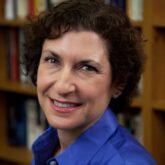
Elizabeth Watkins, Ph.D.
Position: Elizabeth Watkins, Ph.D., is Dean of the Graduate Division, Vice Chancellor of Student Academic Affairs, and Professor of the History of Health Sciences at the University of California, San Francisco. She joined the faculty at UCSF in 2004 and served as director of graduate studies for the Ph.D. and M.A. programs in History of Health Sciences until her appointment as Dean in 2012.
Education: She earned her B.A. in Biology and her Ph.D. in the History of Science, both at Harvard University.
Research: Dr. Watkins is the author of On the Pill: A Social History of Oral Contraceptives (1998) and The Estrogen Elixir: A History of Hormone Replacement Therapy in America (2007), and co-editor of Medicating Modern America: Prescription Drugs in History (2007), Prescribed: Writing, Filling, Using, and Abusing the Prescription in Modern America (2012), and a forthcoming volume titled Therapeutic Revolutions Revisited: Histories of Pharmaceuticals and Social Change. She has also published articles on the history of Norplant, the history of male menopause, and the history of stress.
Achievements: Her research has been funded by the National Endowment for the Humanities, the NIH/National Library of Medicine, the National Academy of Education, the National Science Foundation, the University of California President’s Research Fellowship in the Humanities, and an ACOG/Ortho-McNeil Fellowship in the History of American Obstetrics and Gynecology.
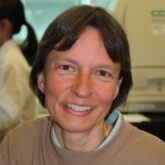
Ina Dobrinski, D.V.M., Ph.D.
Position: Ina Dobrinski, D.V.M., M.V.Sc., Ph.D., Diplomate A.C.T., is Professor of Reproductive Biology and Head of the Department of Comparative Biology and Experimental Medicine at the Faculty of Veterinary Medicine, University of Calgary. Dr. Dobrinski also holds an appointment in the Department of Biochemistry and Molecular Biology in the Faculty of Medicine at the same institution, and is a scientist with Alberta Innovates—Health Solutions.
Education: Dr. Dobrinski received her doctorate in veterinary medicine from Hannover School of Veterinary Medicine in Germany and completed a residency in bovine reproduction. She then moved to the University of Saskatchewan where she completed another residency in large animal reproduction, received a Master in Veterinary Science degree, and subsequently became board certified by the American College of Theriogenologists. Dr. Dobrinski then moved to Cornell University where she received a Ph.D. in reproductive biology. She then joined the faculty at the University of Pennsylvania, where she was promoted to full professor in 2008. Subsequently, she joined the newly established Faculty of Veterinary Medicine at the University of Calgary.
Research: Dr. Dobrinski’s research focuses on male germ line stem cells in mammalian models ranging from mice to men. Her group first established germ cell transplantation in large animals as a strategy to create genetically modified large animal models for biomedical research and for the production of biopharmaceutical proteins in the milk of transgenic dairy animals. She also pioneered xenotransplantation of testis tissue and cells as a bioassay to study germ cells and testis function in non-rodent animal models.
Achievements: Her work has been funded continuously by federal and state/provincial agencies since 1998. To date, she has published 77 peer-reviewed research papers, 15 book chapters, and 12 invited reviews. Dr. Dobrinski has served the scientific community on numerous committees and multiple scientific societies (including service as reviewing editor for Biology of Reproduction).

David P. Bartel, Ph.D.
State-of-the-Art Lecture
Position/Education: David Bartel received his Ph.D. from Harvard in 1993 and soon thereafter started a lab at the Whitehead Institute for Biomedical Research, where he is also Investigator of the Howard Hughes Medical Institute and Professor of Biology at the Massachusetts Institute of Technology.
Research: Dr. Bartel’s lab initially studied the ability of RNA to catalyze reactions, and more recently has focused on microRNAs and other regulatory RNAs. Over the past 14 years, his lab has contributed to the understanding of the genomics, biogenesis, and regulatory targets of these RNAs, as well as the molecular and biological consequences of their actions in animals, plants, and fungi.

David C. Page, M.D.
President’s Symposium
Position: David C. Page, M.D., is Director of the Whitehead Institute, Professor of Biology at the Massachusetts Institute of Technology, and an Investigator at the Howard Hughes Medical Institute.
Research: Dr. Page’s laboratory studies the foundations of mammalian reproduction, with particular attention to the X and Y chromosomes, infertility, and the fetal origins of sex cells—the precursors of eggs and sperm. He has reconstructed the evolution of today’s X and Y chromosomes from an ancestral pair of chromosomes that existed 300 million years ago, and discovered molecular evolutionary mechanisms by which the Y chromosome became functionally specialized in spermatogenesis. He discovered and characterized the most common genetic cause of spermatogenic failure in humans: deletion of the AZFc region of the Y chromosome. He also found that aberrant crossing-over within the Y chromosome’s palindromes underlies a wide range of disorders of sexual differentiation, including Turner syndrome. Recently, his expanded genomic studies of Y chromosomes in eight mammals revealed that male-specific, Y-chromosome genes are enriched for global regulators of cellular processes, which has important implications for understanding fundamental differences between males and females.
Achievements: His honors include a MacArthur Prize Fellowship, Science magazine’s Top Ten Scientific Advances of the Year (in 1992 and again in 2003), and the 2011 March of Dimes Prize in Developmental Biology. He is a Member of the National Academy of Sciences, the Institute of Medicine of the National Academies, and the American Academy of Arts and Sciences.
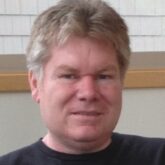
Willie J. Swanson, Ph.D.
President’s Symposium
Position/Education: Willie J. Swanson, Ph.D., received his B.S. in Biology from the University of California, San Diego in 1992 and Ph.D. in Marine Biology from UCSD’s Scripps Institution of Oceanography in 1998 under the mentorship of Victor D. Vacquier. He was awarded a Sloan/NSF postdoctoral fellowship to work with Charles F. Aquadro and Mariana F. Wolfner on the population genetics of reproductive protein diversity. In 2001 he joined the Biology Department faculty at the University of California Riverside, and then moved to the University of Washington where he is currently a Professor in the Department of Genome Sciences.
Research: Dr. Swanson’s research on the function and evolution of reproductive proteins is highly integrative, using proteomics, genomics, biochemical, and computational approaches. He and his colleagues work on a variety of taxonomic groups, including abalone, Drosophila, and primates.
Achievements: He was an Associate Editor for Genome Research and is currently an editor for Molecular Reproduction and Development, Molecular Biology and Evolution, and Journal of Molecular Evolution.
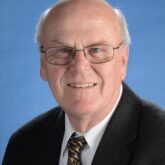
R. Michael Roberts, Ph.D.
President’s Symposium
Position: R. Michael Roberts, Ph.D., is a Curators’ Professor at the University of Missouri with appointments in Animal Sciences, Biochemistry, and Veterinary Pathobiology. He is currently an investigator in the Christopher S. Bond Life Sciences Center at the University of Missouri.
Education: He received his B.A. and D.Phil. in Plant Sciences from Oxford University, England, but since the mid-1970s has worked primarily as a reproductive biologist.
Research: Dr. Roberts is best known for his work on uterine secretions and interferons. He has also studied the role of other unique trophoblast proteins in pregnancy and has (with colleague Jon Green) developed a commercialized pregnancy test for cattle. He made a major transition in research direction in 2003 and began to emphasize the use of human embryonic stem cells to study emergence and differentiation of the human trophoblast, and has made contributions to the culture of such cells.
Achievements: Dr. Roberts was elected to the National Academy of Sciences in 1996 and has received several international awards, including the Milstein Prize for Research on interferons and the Wolf Prize for Agriculture (2003). Dr. Roberts also received the Carl G. Hartman Award (2006) from the Society for the Study of Reproduction. Roberts was Chief Scientist with the USDA’s Competitive Grants Program (the National Research Initiative) from 1998-2000. He also served on the National Research Council’s Committee that published recommendations to the Federal Drug Agency on concerns regarding the use of genetically modified animals for food (Animal Biotechnology: Science Based Concerns, National Academy of Sciences, Washington, D.C.) and chaired the NRC committee that investigated Animal Care & Management at the National Zoo.

Nathaniel Comfort, Ph.D.
President’s Symposium
Position: Nathaniel Comfort is a professor in the Department of the History of Medicine at The Johns Hopkins University, where he has been on the faculty since 2003. Education: From 1997 to 2003, he was on the history faculty at The George Washington University, where he also served as Deputy Director of the Center for History of Recent Science. Prior to that, he served as the science writer for Cold Spring Harbor Laboratory, and before that he studied marine and neurobiology and animal behavior.
Education: In 1997, Dr. Comfort earned his Ph.D. in history from the State University at Stony Brook.
Research: Dr. Comfort’s scholarly interests include the histories of genetics, genomics, eugenics, and modern medicine; his personal interests are rock-climbing, martial arts, blues guitar, and dogs. His books include The Science of Human Perfection: How Genes Became the Heart of American Medicine (Yale, 2012), The Tangled Field: Barbara McClintock’s Search for the Patterns of Genetic Control (Harvard, 2001), and the edited volume, The Panda’s Black Box: Opening Up the Intelligent Design Debate (Johns Hopkins, 2007).
Achievements: He is a regular reviewer for Nature and has published with Natural History, the New York Times Book Review, National Public Radio, Science, New Scientist, The Believer, and elsewhere. He blogs at http://genotopia.scienceblog.com and tweets from @nccomfort. His next book will be a biography of DNA.
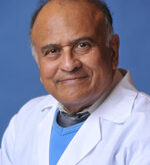
Gautam Chaudhuri, M.D., Ph.D.
ASRM Distinguished Research Scientist Exchange Lecture
Position: Dr. Chaudhuri is Chair and Professor in the Obstetrics and Gynecology Department of the David Geffen School of Medicine at the University of California, Los Angeles (UCLA).
Education: Dr. Gautam Chaudhuri completed his M.B.B.S. from R.G.Kar Medical College, Kolkata; his M.D. from the All-India Institute of Medical Sciences, India; and subsequently received his Ph.D. in Pharmacology from London University under the mentorship of Late Professor Sir John Vane, who won the Nobel Prize in Medicine or Physiology in 1982. Dr. Chaudhuri was the first to propose that the intra-uterine contraceptive device (IUD) acted by releasing prostaglandins and that NSAID-like indomethacin prevented such a release. This explained why the IUD, in addition to its contraceptive action, has different actions in different species. This was subsequently confirmed by other investigators, and NSAIDs have subsequently been used to reduce IUD-induced menorrhagia and expulsion of IUD following its insertion.
After this work, Dr. Chaudhuri completed his residency in Obstetrics and Gynecology from the State University of New York at Buffalo and then joined UCLA to do a fellowship in Reproductive Endocrinology and Infertility. Following completion of this, he joined the department as full-time faculty. Since joining UCLA, he has published extensively on the action of sex steroids and nitric oxide. Dr. Chaudhuri, together with Lou Ignarro, Distinguished Professor of Pharmacology at UCLA and a Nobel Laureate, was a member of one of the first groups to demonstrate that endothelium-derived relaxing factor (EDRF) is nitric oxide (NO). Dr. Chaudhuri was responsible for the pharmacological identification of EDRF as NO, and Professor Ignarro was responsible for its chemical identification. Dr. Ignarro shared the Nobel Prize for the chemical identification of EDRF as NO.
Research: Dr. Chaudhuri has made significant contributions to understanding factors that control vascular tone, effect of estrogens on atherosclerosis, and biology of cancer (especially breast cancer). His current work includes the mechanism as to how cancer cells generate ATP, the etiology of pre-eclampsia and the role of gamma amino butyric acid (GABA) in this process. Dr. Chaudhuri’s clinical work is focused on general gynecology and reproductive endocrinology and infertility, although he still takes calls in obstetrics when required.
Achievements: Dr. Chaudhuri has been awarded the President’s Distinguished Scientist Award by the Society for Gynecologic Investigation USA, the premiere scientific society for gynecologists, and was recently inducted into the Royal College of Obstetricians and Gynecologists as a Fellow ad euendum. Dr. Chaudhuri has served as the Chair of the Steering Committee for the Obstetrics Pharmacology Research Unit for the National Institute of Child Health and Human Development and as Chair of the Maternal-Fetal Study Section of the NICHD. He has been a member of the Human Embryology and Development Study Section of the NIH, and subsequently a member of the Council of NICHD.
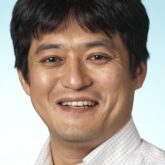
Satoshi Namekawa, Ph.D.
SSR New Investigator Exchange Lecture
Position: Satoshi Namekawa, Ph.D., is Assistant Professor in the Division of Reproductive Sciences at Cincinnati Children’s Hospital Medical Center and in the Department of Pediatrics at the University of Cincinnati College of Medicine.
Education: Satoshi Namekawa received his Ph.D. from Tokyo University of Science in 2005, and completed his postdoc training in 2009 under the mentorship of Jeannie T. Lee at Massachusetts General Hospital and Harvard Medical School. During his postdoc training, he was awarded the JSPS postdoctoral fellowship and subsequently the Charles A. King Trust postdoctoral fellowship. In 2009, he joined the faculty at Cincinnati Children’s Hospital Medical Center.
Research: Dr. Namekawa’s laboratory studies the epigenetic events in the male germline and has revealed fundamental mechanisms governing the sex chromosomes. He demonstrated that DNA damage response pathways trigger both gene silencing and activation of the sex chromosomes in the male germline. Furthermore, he demonstrated that epigenetic mechanisms impact the genomic evolution of mammalian sex chromosomes. He recently embarked on the study of the epigenome in spermatogenesis. His study will reveal fundamental epigenetic mechanisms in the male germline and help illuminate various reproductive issues including male infertility and birth defects.
Achievements: Dr. Namekawa’s work has been funded by NIH R01 Award and Research Grant from March of Dimes Foundation. He received the Basil O’Connor Award from March of Dimes Foundation.
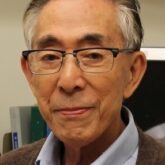
Ryuzo Yanagimachi, Ph.D.
Heritage Luncheon
Dr. Ryuzo Yanagimachi, of the University of Hawaii School of Medicine, will be speaking at the 2015 Heritage Luncheon. The talk, titled ” M. C. Chang, Grandfather of IVF,” will be honoring the late Dr. M.C. Chang. Dr. Chang helped to revolutionize birth control through his involvement in developing “the pill,” and conducted ground-breaking research proving the viability of in vitro fertilization. He published nearly 350 articles in scientific journals and was a member of the Society for the Study of Reproduction. Dr. Yanagimachi worked as a post-doctoral student with Dr. Chang at the Worcester Foundation for Experimental Biology in Shrewsbury, Massachusetts.

Susan Taymans, Ph.D.
NIH Mock Study Section and Policy Seminar
Position: As a Program Director in the Fertility and Infertility Branch of the Eunice Kennedy Shriver National Institute of Child Health and Human Development (NICHD), NIH, Susan Taymans, Ph.D., oversees the Reproductive Genetics and Epigenetics portfolio and the Basic Ovarian Biology portfolio. These portfolios encompass research in sex determination, the genetics of reproductive aging, infertility genetics, and non-Mendelian inheritance in reproduction; and follicle endowment, follicle and oocyte development, ovulation, luteal function, and ovarian pathologies that affect fertility. She manages the branch’s T32 training grants and is the Co-Chair of NICHD’s Training Policy Committee.
Education: Dr. Taymans received her doctorate in Molecular Endocrinology from the University of Maryland. She held pre- and post-doctoral Intramural Research Training Award positions in the NICHD intramural program before coming to the extramural NICHD community.
Research: Dr. Taymans’ research background is in molecular endocrinology, endocrine genetics, and positional cloning.
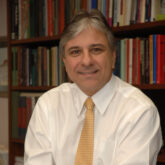
Louis DePaolo, Ph.D.
NIH Mock Study Section and Policy Seminar
Position: Dr. Louis DePaolo is Chief of the Fertility and Infertility Branch of the Eunice Kennedy Shriver National Institute of Child Health and Human Development (NICHD). In this role, Dr. DePaolo provides oversight leadership of the institute’s portfolio of grants dealing with basic, translational, and clinical studies in male and female fertility regulation. The branch is the single largest funding source for research and research training programs dealing with reproduction and infertility in the Federal Government, providing support for nearly 300 grant awards totaling approximately 90 million dollars.
Education: Dr. DePaolo received his doctorate degree in Physiology from the University of Maryland School of Medicine, and held faculty appointments at the University of Texas Health Science Center in San Antonio (tenured), and the Salk and Whittier Institutes in California. During this period, Dr. DePaolo received research, research training, and career development support from the National Institutes of Health resulting in the publication of more than 60 papers on the neuroendocrine control of reproduction.
Research and Achievements: Since joining the NICHD in 1994, Dr. DePaolo has established the Reproductive Neuroendocrinology and Ovarian Biology Programs, as well as the National Centers for Translational Research in Reproduction and Infertility (NCTRI), and the Contraception and Infertility Research Loan Repayment Program (CIR-LRP) which became the first NIH extramural loan forgiveness program. Dr. DePaolo also developed an interagency “Dual-Purpose, Dual-Benefit” (DP/DB) program with the United States Department of Agriculture to support research that addresses both biomedicine and agriculture using large animal models.
On the international front, Dr. DePaolo has established a Visiting Scientist Training Award (VSTA) Program with the South Korean government to allow Korean fellows and early faculty members to receive training in reproductive epidemiology and population surveillance at the NICHD. In this regard, Dr. DePaolo was a member of the U.S. delegation to Korea for the 2010 U.S.-Korea Joint Commission Meeting sponsored by the Office of Science and Technology Policy (OSTP).
Finally, under his leadership, branch staff have initiated programs aimed at increasing workforce diversity in the reproductive sciences and enhancing community outreach and education efforts.

Gary Hunnicutt, Ph.D.
NIH Mock Study Section
Position: Dr. Gary R. Hunnicutt is the Scientific Review Officer for the Cellular, Molecular, and Integrative Reproduction (CMIR) study section for the National Institutes of Health.
Education: Dr. Hunnicutt is a reproductive biologist who obtained his doctorate degree at the University of Texas Southwestern Medical Center, and was a Senior Scientist for many years for the Population Council at Rockefeller University before moving to the NIH.
Research: The CMIR study section reviews research applications done in model organisms through studies involving humans. Areas of research covered include: ovarian and testicular biology, primordial germ cells, oogenesis, spermatogenesis, meiosis, capacitation, acrosome reaction, fertilization, contraception, gamete cryopreservation, artificial reproductive technologies, zygotic gene activation, epigenetic imprinting, pre-implantation embryos, and uterine receptivity. Dr. Hunnicutt encourages all qualifying new investigators to apply for the Early Career Reviewer program.

Thaddeus T. Schug, Ph.D.
NIH Policy Seminar
Position and Research: Dr. Thaddeus (Thad) Schug is a health scientist administrator in the Population Health Branch of the extramural division at the National Institute of Environmental Health Sciences (NIEHS), where he oversees programs in the scientific areas of male and female reproduction, metabolism, and the development and disruption of the endocrine systems. He also has interest in projects associated with green chemistry.
Education: Dr. Schug received his doctorate in nutrition and biomedical sciences from Cornell University. His graduate work focused on the relationships between nuclear hormone receptor activation and various forms of cancer. He conducted his postdoctoral studies at the National Institutes of Health/National Institute of Environmental Health Sciences (NIH/NIEHS). At NIH, he investigated the sirtuin family of genes, which are involved in the aging process, homeostasis, metabolism, and inflammation.

